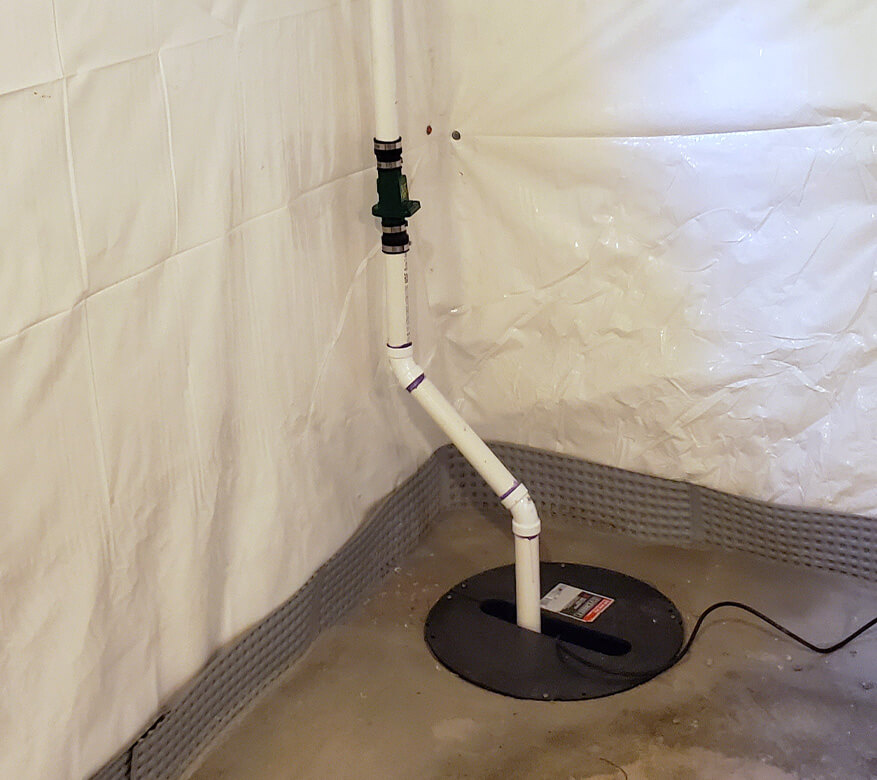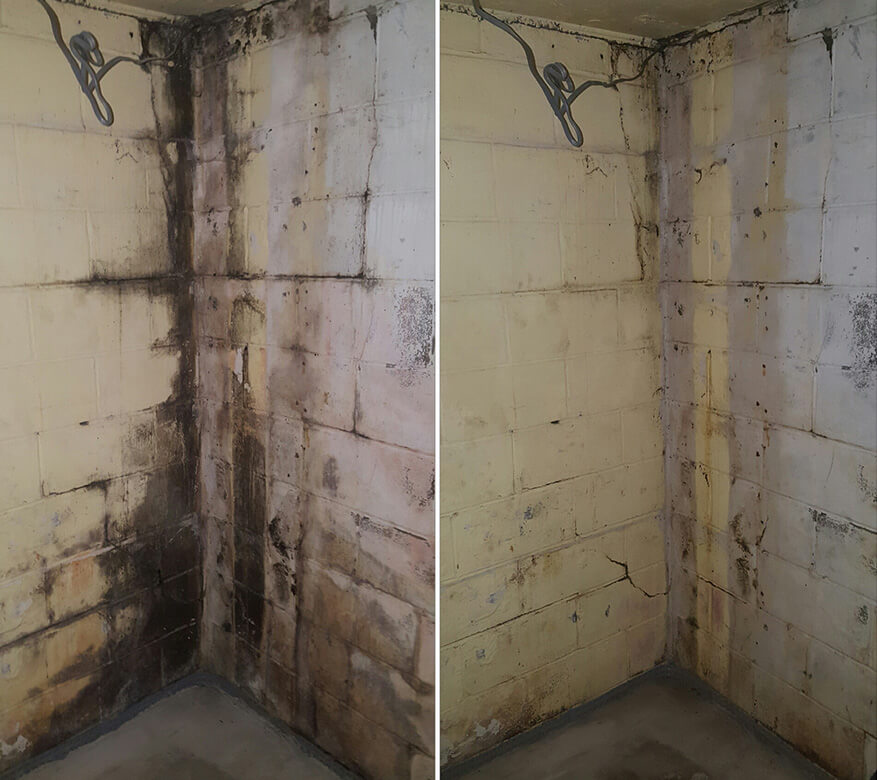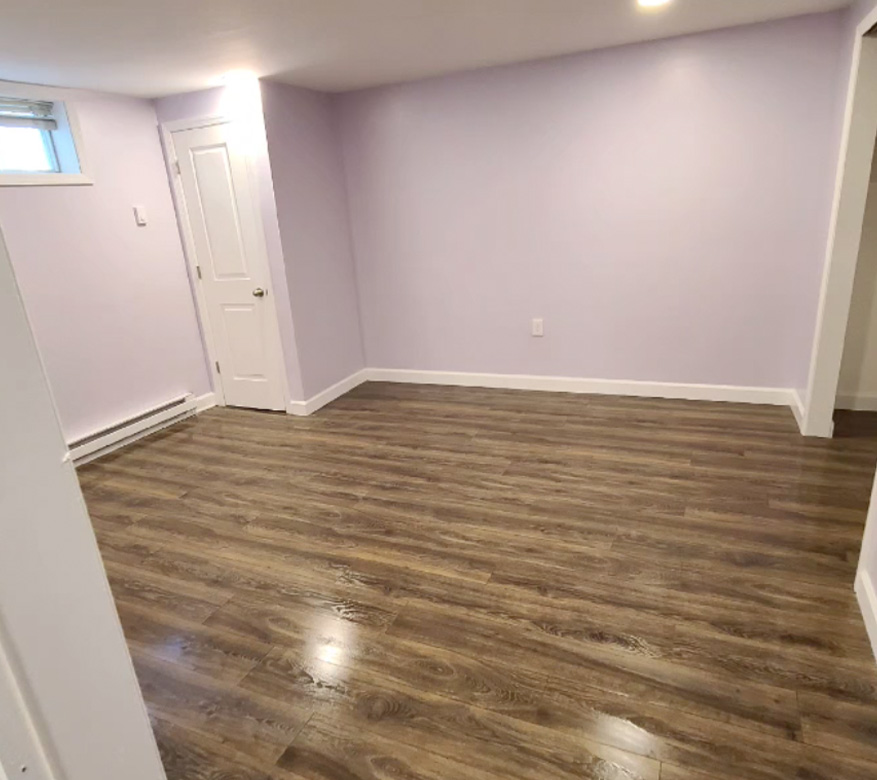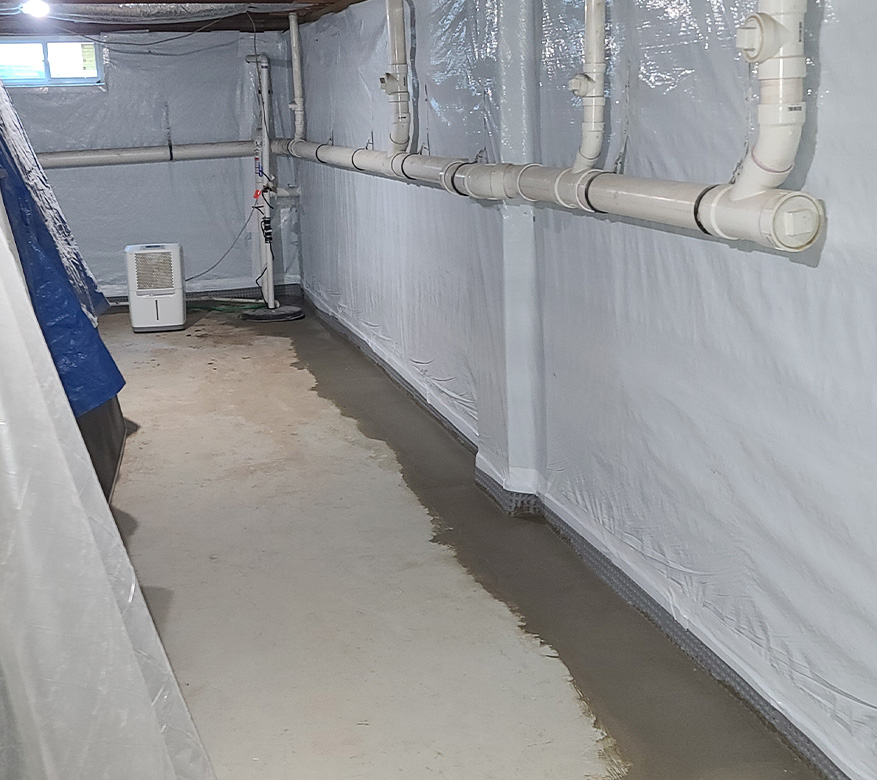Is your basement protected from the next storm?
Quality Waterproofing Solutions
Expert, Certified Inspectors
Reliable & Affordable Service
Fully Licensed and Insured
Services
Services We Provide
Why does my basement leak?
The builder of your house dug a hole in the ground and put your home in it – with no protection. When it rains Ground Water enters your basement at the footer joint (where the floor and wall meets) because of tremendous pressure exerted by the water in the earth around subterranean walls. This stress eventually forces the water to find the path of least resistance. According to the Home Inspection Census more than 98% of all basements will eventually leak.
As shown in the image, water can and will eventually enter through the most least resistant spots in the basement.
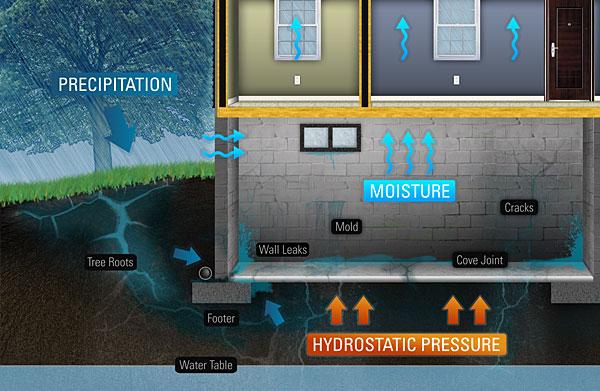
Moisture control
The key to mold control is moisture control.
Clean up the mold promptly
If mold is a problem in your home, you should clean up the mold promptly and fix the water problem.
Prevent mold growth
It is important to dry water damaged areas and items within 24 to 48 hours to prevent mold growth.
What can happen if I don’t fix it now?
Regardless if your house is only 1 month or 75 year’s old all basements eventually will get water. If the water intrusion problems are not addressed properly in a timely then they will only get worse.
Basements are typically the area of a structure most at risk for water damage because they are located below grade and surrounded by soil. Wet basements can cause problems that include peeling paint, toxic mold contamination, building rot, foundation collapse, and termite damage. Even interior air quality can be affected if naturally occurring gasses released by the soil are being transmitted into the basement. Properly waterproofing a basement will lessen the risk of damage caused by moisture or water.
Can mold cause health problems?
Molds are usually not a problem indoors, unless mold spores land on a wet or damp spot and begin growing. Molds have the potential to cause health problems. Molds produce allergens (substances that can cause allergic reactions), irritants and, in some cases, potentially toxic substances (mycotoxins). Inhaling or touching mold or mold spores may cause allergic reactions in sensitive individuals. Allergic responses include hay fever-type symptoms, such as sneezing, runny nose, red eyes, and skin rash (dermatitis).
Allergic reactions to mold are common. They can be immediate or delayed. Molds can also cause asthma attacks in people with asthma who are allergic to mold. In addition, mold exposure can irritate the eyes, skin, nose, throat and lungs of both mold-allergic and non-allergic people. Symptoms other than the allergic and irritant types are not commonly reported as a result of inhaling mold. Research on mold and health effects is ongoing. This article provides a brief overview; it does not describe all potential health effects related to mold exposure. For more detailed information, consult a health professional. You may also wish to consult your state or local health department.
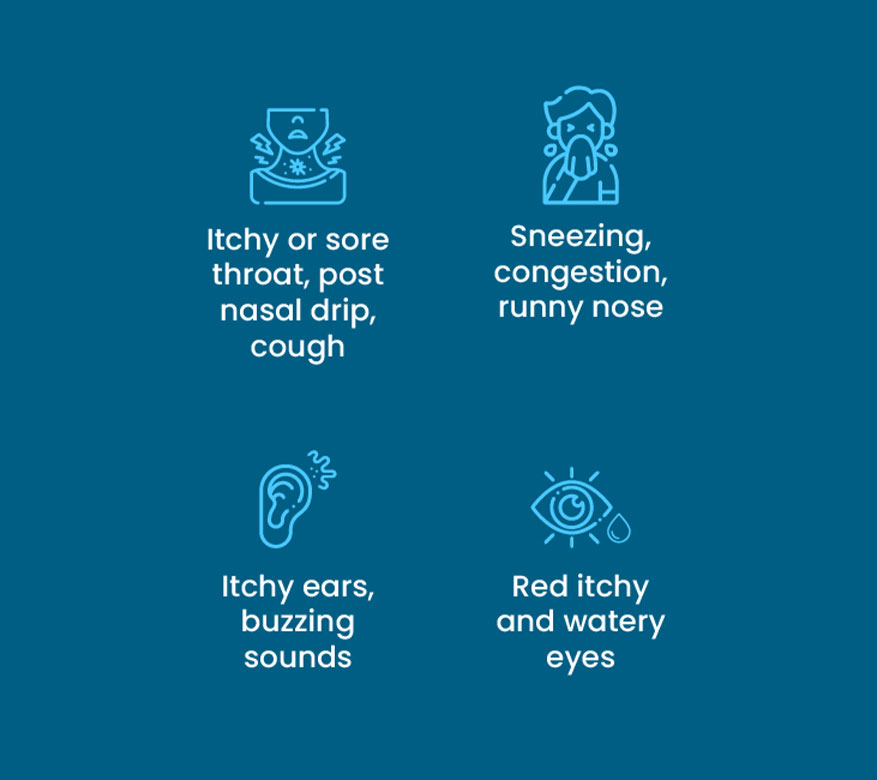
Do you need help with your basement?
Projects
What We Have Done
Testimonials
What Our Customers Say
Call today to schedule a FREE in home estimate with one of our highly experienced and certified Basement Waterproofing and Mold inspectors.
- 732-218-8897


